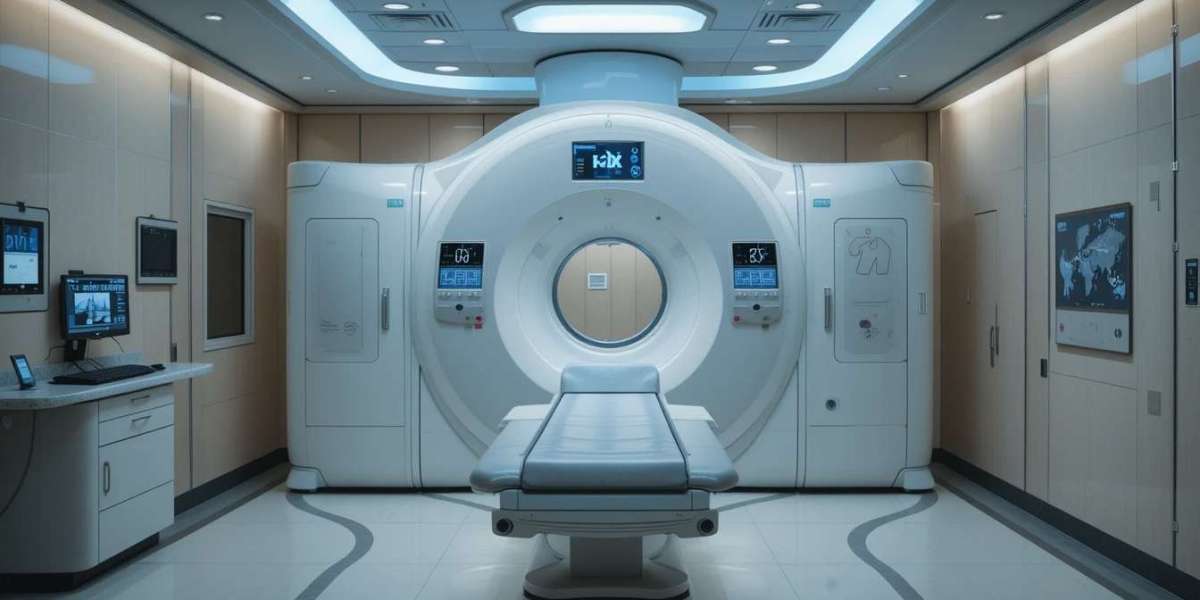Nuclear medicine plays a big role in modern healthcare. It helps doctors see what is going on inside the body in a safe and accurate way. In Toronto, this work is part of a growing health system. Many hospitals and clinics are hiring trained workers in this field. People with the right skills are needed every day. Still, having a diploma is not always enough. Hiring teams look for more than school grades.
To compete in this field, you need both hard skills and soft ones. These include how well you handle people, how you manage your time, and how you work with medical tools. This post will explain the skills that can help you stand out. If you’re trying to break into nuclear medicine in Toronto, this is for you.
What Does a Nuclear Medicine Technologist Do?
Nuclear medicine technologists work with special tools that use small amounts of radioactive material. These tools help find problems inside the body. The scans help detect cancer, heart disease, and other illnesses. Technologists prepare the radioactive drugs, guide patients through the process, and take images for doctors to study.
They also manage safety steps, make records, and often work with a team of doctors, nurses, and other experts. Every scan must be done the right way to keep people safe and get clear results. In Toronto, technologists may work in hospitals, imaging centres, or private clinics. Some also help with medical research.
Important Technical Skills
1. Using Medical Imaging Equipment
A major part of the job involves handling imaging machines. These include PET, CT, and SPECT scanners. You must know how to prepare the machines and adjust settings for each patient.
It’s not just about pressing buttons. You must understand how the equipment works and how to fix minor issues. Clear scans are key to spotting illness early.
You’ll also need to clean and inspect machines. In busy clinics, there’s little room for error.
2. Handling Radiation Safely
You will work with radioactive drugs, so you must know how to stay safe. These rules are not just for you but also for patients and co-workers. You’ll need to follow all safety plans. This includes using shielding, wearing badges that track exposure, and storing materials the right way.
If there is a spill or issue, you must act fast and know the proper steps. Health and safety are always a top focus in this field.
3. Accurate Record Keeping
Every scan you take must be tracked. That includes patient details, drug doses, and results. You’ll work with both paper forms and digital systems. Mistakes in record keeping can cause delays or wrong results. This is why attention to detail is so important.
You will also need to follow privacy rules. Patients trust you with their health data, and you must handle it with care.
Must-Have Soft Skills
1. Clear and Calm Communication
You’ll speak with people every day. That means talking with patients, doctors, and other staff.
Not all patients know what nuclear medicine means. You may need to explain things in a way that is easy to understand. Clear words help lower stress and make patients feel more at ease. It also helps the team work better together.
2. Time and Task Management
Hospitals and clinics run on tight schedules. As a technologist, you may see many patients in one day. You must move from one task to the next without losing focus. Good time habits help you keep pace without making mistakes.
It also means being ready when emergencies or changes happen. You need to be flexible and fast when the day gets busy.
3. Compassion and Patience
Many patients are nervous or scared before their scan. Some may be sick or in pain.
Kindness goes a long way. A warm smile or calm voice can change how they feel.
This helps build trust and often leads to better results. Patients who feel safe are more likely to follow steps and stay still during tests.
Education and Training
To work in nuclear medicine, you need the right school background. Most workers in this field have a diploma or degree in nuclear medicine or a related field. Programs in Canada include hands-on learning and classroom work. These cover radiation, anatomy, and imaging tools.
You must also get certified. The Canadian Association of Medical Radiation Technologists (CAMRT) is the main group for this. Some workplaces may ask for extra courses like CPR or infection control. With more training, you can move up into jobs that involve teaching or planning.
Challenges You May Face
This career can be very rewarding, but it also comes with some tough parts. Long shifts, moving between tasks, and dealing with stress are common. Machines may stop working. Patients may be hard to work with.
Staying calm helps. So does being part of a strong team. When you feel supported, the tough days become easier. It’s also smart to take care of your own health. Good rest, food, and breaks make a big difference.
Career Outlook in Toronto
Toronto is home to some of Canada’s biggest hospitals and health networks. That means more chances to grow in your career. As the population gets older, more people will need scans and care. Clinics and hospitals are hiring more people each year.
If you like steady work and want to help others, this is a good field to explore. You can grow from entry-level roles to more advanced ones over time. People looking to build a medical radiation technologist career often start in cities like Toronto, where training and job options are more available.
How to Prepare for Job Opportunities
If you are hoping to apply for jobs soon, a little prep can help.
You should know your strengths and be able to talk about them. Focus on both your skills with machines and your ability to work with people. Update your resume and keep your certificates handy. Look clean and speak with care during your interview.
It also helps to do some reading about the clinic or hospital. Learn what tools they use and what type of patients they help. As competition grows, showing your full range of skills can help you stand out. In the long run, these steps can bring better chances and stronger job offers.
People looking for healthcare jobs in Ontario often find success when they highlight both their training and people skills.
Final Thoughts
Nuclear medicine jobs are vital to health care in Canada. They offer a chance to help people and grow your skills at the same time. If you are ready to enter this field, focus on what matters most. This includes being careful with tools, being kind to patients, and working well with a team.
Getting one of the nuclear medicine jobs Toronto offers takes time and effort. But once you're there, the work can be meaningful and long-lasting. By building both your technical skills and your people skills, you will be ready for a job that truly makes a difference.









